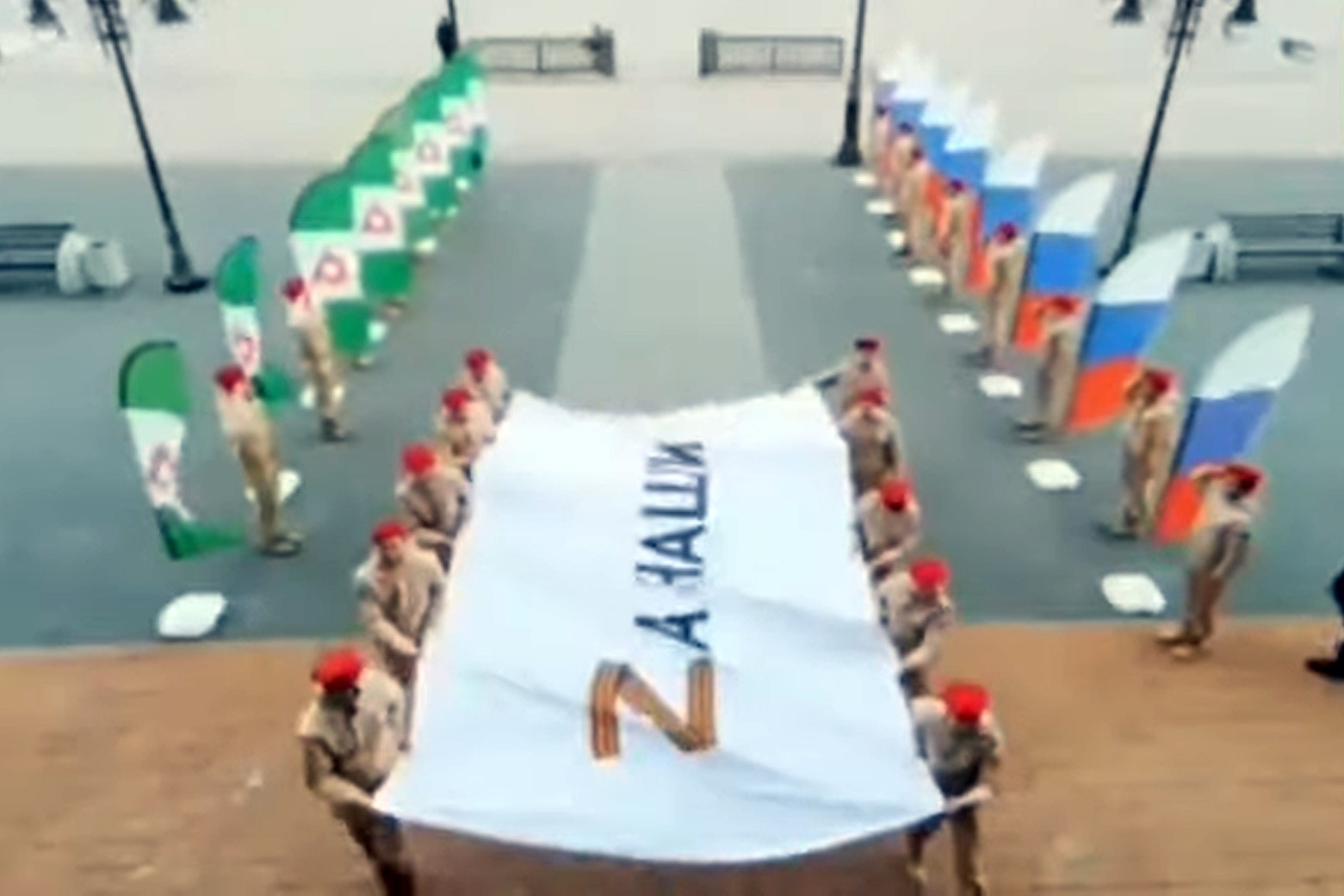
Russian authorities have opened a criminal investigation against the founder of the Ingush news site Fortanga for publishing ‘misinformation’ on Facebook about the Russian invasion of Ukraine. Fortanga has also been blocked by the Russian communications watchdog, Roskomnadzor.
On 25 March, Izabella Evloeva revealed that Russia’s Investigative Committee was investigating her under the newly introduced article 207.3 of the Russian Criminal Code, which punishes the publication of ‘misinformation’ about the military. Violations of the law carry a maximum of three years in prison.
Evloeva, currently based in Prague, is being investigated for criticising the participation of children in a pro-war rally in the Ingush capital of Magas, in which a flag with the letter ‘Z’ was hoisted atop one of the Tower of Harmony.
‘The rally was initiated by the Mayor of Magas, Usman Aushev. I just asked a question: are you not ashamed to involve children in this? Well, my words, that I consider this symbolism of the letter “Z” to be a synonym for lies, pain, manipulation, death, the security forces got hooked on this quote and opened a criminal case’.
The letter ‘Z’ has become a symbol of Russia’s war against Ukraine, after it was spotted painted on vehicles taking part in the invasion.
Evloeva said she was not surprised to have been charged, due to her criticism of the Chechen-Ingush land deal as well as her coverage of human rights violations in Ingushetia.
Fortanga was founded in 2018 in the wake of the controversial deal, which handed vast swathes of Ingushetia’s territory to their eastern neighbour and led to months of protests.
[Read more on the fallout from the land deal: One year since Ingushetia’s protests]
‘It seemed to me that sooner or later they would initiate a criminal case, but mainly because of these reasons’, she said.
Evloeva said she had attempted to shield Fortanga from being blocked by writing about more ‘sensitive things’ on her personal Facebook and Telegram pages, while the website continued to publish news about the war in Ukraine.

On 28 March, the federal media watchdog Roskomnadzor took down Fortanga.
‘I certainly associate this with coverage of the situation around Ukraine, because we always write and count the number of victims, prisoners, describe the opinions of local residents who are against war’, said Evloeva.
‘We have recently stopped doing this [interviewing residents], because we are afraid that they will be prosecuted. I’m sure it has something to do with the coverage of the war in Ukraine’.
Roskomnadzor has repeatedly threatened Fortanga with closure and restrictions. In October 2021, the agency ordered the Ingush news outlet to remove materials about the border agreement between Ingushetia and Chechnya, threatening to block news releases if they refused.
But despite constant threats and the recent criminal case, Evloeva asserted that she would continue her activities in social networks and coordinate with specialists to fully restore her work and also defend herself legally.
‘If the case goes to court, then I have already been offered the help of lawyers, I know that this is only a formality, but it will be observed, I will defend myself, and my lawyer will be present at the trial and during investigative measures’.
‘Now it’s like a mosquito bite for me, it incites me even more and strengthens my desire to continue my work, because it means that I am interfering with the bad guys’, Evloeva told OC Media.
Since the beginning of the war in Ukraine, 46 people in Russia have been prosecuted for publishing ‘false information’ or bringing the armed forces into disrepute, according to Pavel Chikov, head of the Agora international human rights group.
‘In just a month since the beginning of the invasion of Ukraine, 60 criminal cases were initiated on the territory of the Russian Federation, which, one way or another, were related to protests against the actions of the Russian authorities and their public criticism’, Chikov said on his Telegram channel.
Cases were initiated in 21 regions of Russia under 14 different articles of the criminal code — 10 of which have been recently introduced under regulations to curb ‘misinformation’ about the military.








